Self-care unlocks potential of fast-moving consumer healthcare in Vietnam
Self-care is a trend that has been creating a positive impact around the world. According to a report by the Global Self-Care Federation in 2022, self-care activities generated $119 billion in monetary and healthcare workforce savings globally and relieved the burden on healthcare providers, saving 1.8 billion hours of physicians’ time.
In the US, for every $1 spent on the over-the-counter drug system, the US healthcare system saves $7. In Europe, when they switch from investments in prescription drugs to those for over-the-counter medicines, with a transfer rate of 5 per cent, their health system saves up to €16 billion each year.
A step forward in promoting the importance of self-care
In Vietnam, self-care is no longer an unfamiliar concept. According to the report The Power of Self-Care in Achieving Health for All by KPMG and Sanofi, it is estimated that from $2.5-4.2 billion of annual savings could be unlocked if policies driving self-care implementation are applied.
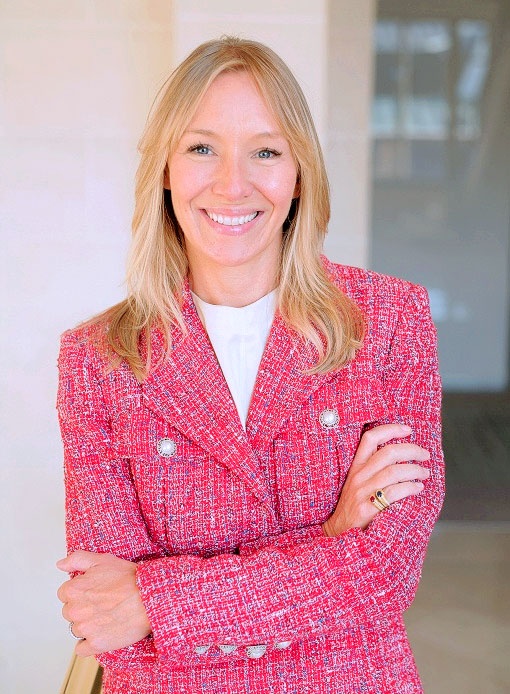 |
| Julie Van Ongevalle, executive vice president, head of consumer healthcare (CHC) at Sanofi |
People are taking more accountability for their health and wellbeing because of the lessons learned from the pandemic. Simultaneously, this positive behaviour shift enables the consumer healthcare product market to grow.
For instance, the ageing population, the expanding middle class, and the growth of drug store chains have all contributed to the enormous development of the over-the-counter industry in Vietnam.
Consumers not only set higher quality standards, but also continuously look for a convenient, consumer-relevant, and emotionally connected approach to healthcare products and services. Therefore, the healthcare industry must also be fast-moving to meet their ever-changing needs.
Thus, FMCH is being promoted as the intersection between the dynamism of fast-moving consumer goods culture and the stability and quality-assurance of the healthcare industry.
Thanks to the innovative approach and rapid growth of FMCH, people can access a wide range of healthcare products from personal care and bone health supplements to multivitamins and probiotics conveniently at supermarkets, drug store chains, and on e-commerce platforms.
Julie Van Ongevalle, executive vice president, head of consumer healthcare (CHC) at Sanofi said, "The junction between self-care and the FMCH industry is two-way. At Sanofi, we champion better self-care to educate, support, and empower people to care for themselves, their community, and our planet. This also means that we work to make self-care as simple as possible every day, and to be seen as a trusted partner by all of our stakeholders, driving our vision to become the best FMCH company in and for the world."
Health In Your Hands – the shared responsibility to create a healthier society and planet for all
In that context, encouraging and facilitating better self-care for all people has become the top priority for leading global healthcare companies like Sanofi.
With more than 9,000 employees, Sanofi CHC empowers hundreds of millions of people to take control of their health by giving them 24/7 access to more than 100 brands in over 100 countries, making a difference to consumers where it counts and driving leadership in our key categories of allergies, digestive wellness, pain relief, physical and mental wellness, coughs, colds and flu, and personal care.
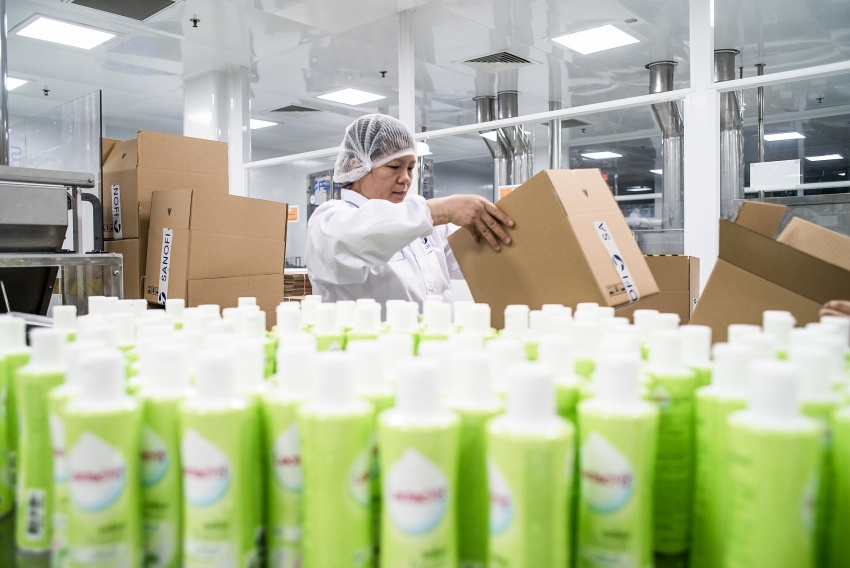 |
With the goal of helping people become more informed about their health, a series of entertaining communication campaigns have been launched in response to WHO-related awareness days such as International Self-Care Day, World Health Day, and World Pharmacist Day.
In the 4.0 era, digital transformation is the dominant force for consumer engagement, and it is unlocking the potential of digital social media platforms such as YouTube, TikTok, and Instagram, as well as that of Key Opinion Leaders. Sanofi has delivered many edutainment activities, merging educational information with a fascinating format to reach out and engage with people more efficiently.
With QR codes and e-labelling, consumers can quickly obtain reliable and accurate product information. Sanofi is speeding up its digitalisation with investments in data science, digital technologies, AI, big data, and novel clinical trials. Continuous investment is also required in integrated industrialisation, networked teams, operations, intelligent quality management, real-time supply chains, and completely digital modules.
This push does not just meet consumer needs, but also those of healthcare professionals. Sanofi continuously updates its medical information and advice on the right medical conditions and medicines via interactive activities, such as the online Sanofi CHC academy.
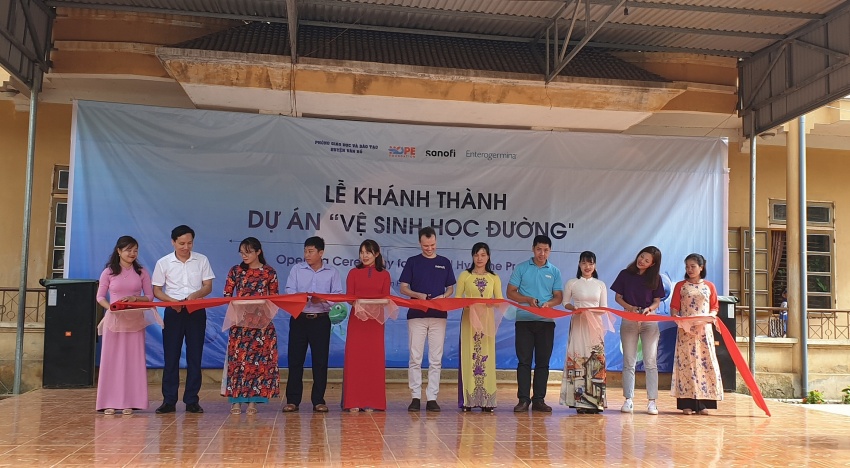 |
For vulnerable and disadvantaged communities, Sanofi dedicates one day each year – called Purpose Day – for all employees to participate in local voluntary activities. Several corporate social responsibility activities have been held to address the root causes of key issues.
For example, Sanofi CHC sponsored the Hygiene in Schools project by the Hope Foundation to provide hygiene and handwashing education, safe water access, and standard toilets for 20 primary and secondary schools in Son La province. This purposeful activity has contributed to solving the lack of clean water and poor living standards, which are the main causes of digestive health problems among children.
Finally, Sanofi is dedicated to sustainable development and has put in place a number of programmes to lessen its impact on the environment. Via the Planet Care initiative, Sanofi has built a path towards carbon neutrality by 2030 and net-zero emissions by 2045.
In Vietnam, the manufacturing site aims for carbon neutrality by 2025, 100 per cent renewable electricity by 2025, and to continually reduce waste from its products and value chain. Sanofi Vietnam is implementing the Rice is the New Green project, where rice husk biomass is used to replace fossil fuels – expected to reduce 2.3 kilotons of CO2 emissions per year.
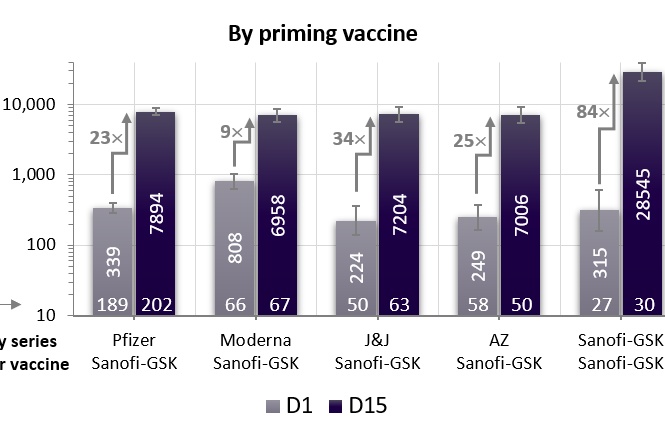 | Sanofi and GSK to seek regulatory authorisation for COVID-19 vaccine Sanofi and GSK on February 23 announced that they intend to submit data from both their booster and Phase 3 efficacy trials as the basis for regulatory applications for a COVID-19 vaccines. |
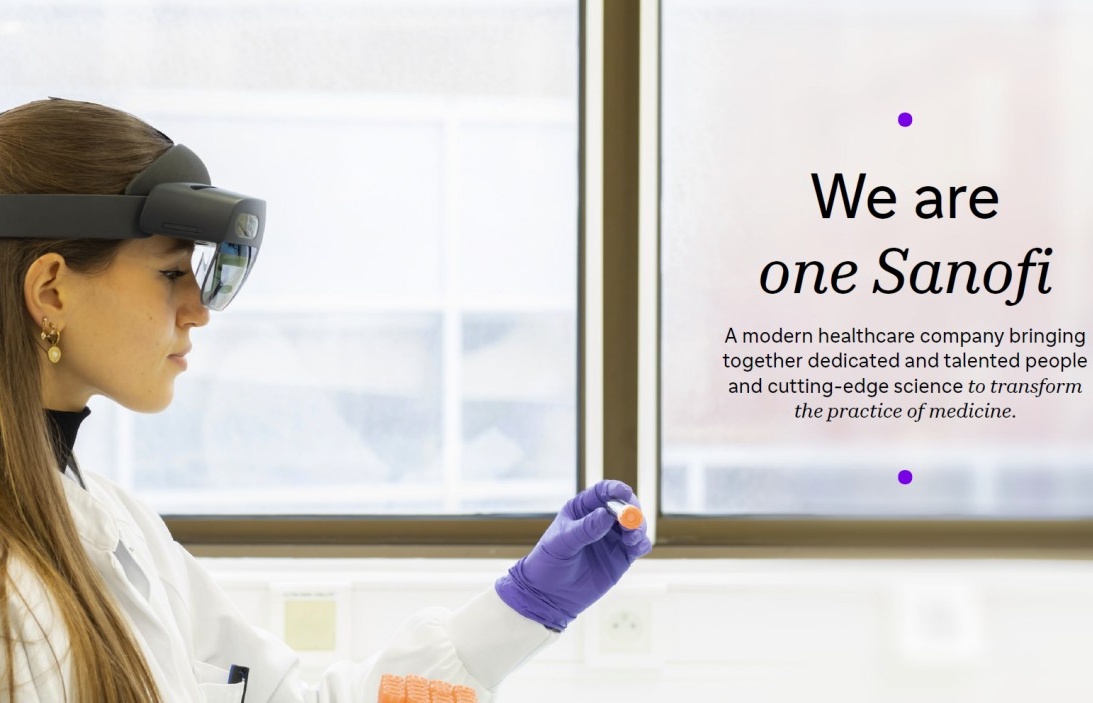 | Sanofi unveils new corporate brand and logo Sanofi unveiled a new bold and unifying corporate brand that supports the modernisation and transformation the company launched in December 2019. |
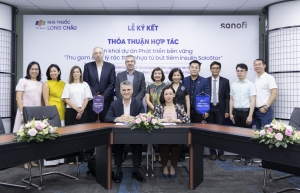 | Sanofi-Aventis Vietnam joins efforts to reduce plastic waste Sanofi-Aventis Vietnam on June 17 entered a cooperation agreement with FPT Long Chau to implement the Insulin Pen Sustainability Pilot Project, aiming at reducing plastic waste and creating a solution to properly dispose of used insulin pens in Vietnam. |
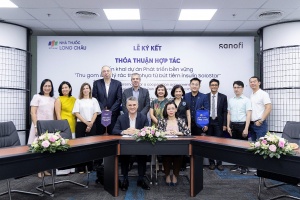 | Sanofi's leader sees Vietnam as a promising market for healthcare Vietnam is emerging as a promising market for healthcare development in the region, according to Marc-Antoine Lucchini, Head of Foundation, General Medicines at Sanofi, who has recently paid a business trip to several Asian countries. |
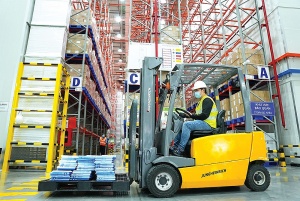 | French groups keen to back green schemes Sustainable green development and expanding investment links between France and Vietnam are being highlighted as the two countries celebrate the 50th anniversary of diplomatic relations and 10 years of strategic partnership this year. |
What the stars mean:
★ Poor ★ ★ Promising ★★★ Good ★★★★ Very good ★★★★★ Exceptional
 Tag:
Tag:
Themes: Healthcare Platform
- Sanofi, Long Chau Pharmacy relaunch medicine blister pack collection initiative
- Takeda Vietnam awarded for ongoing support of Vietnam’s sustainability efforts
- Self-care signals shift towards sustainable healthcare
- DKSH to acquire Vietnamese healthcare distributor Biomedic
- Two national hospitals expand capacity with new facilities
Related Contents
Latest News
More News
- BIM and ISO 19650 seen as key to improving project efficiency (January 17, 2026 | 10:45)
- US-Vietnam partnership targets tilapia development and soy-based aquafeed trade (January 16, 2026 | 16:50)
- Vietnam, UN strengthen cooperation in digital technology, AI (January 16, 2026 | 16:48)
- Shopee and TikTok Shop account for 8 per cent of Vietnam’s retail market (January 16, 2026 | 00:00)
- Sanofi, Long Chau Pharmacy relaunch medicine blister pack collection initiative (January 15, 2026 | 15:35)
- Viet Industry 2026 exhibition scheduled for September (January 09, 2026 | 09:51)
- Cathay kicks off ‘80 Years Together’ anniversary celebrations (January 08, 2026 | 11:05)
- Electronics drive Vietnam’s trade growth as exports hit record in 2025 (January 07, 2026 | 10:23)
- Vietnam’s domestic market to grow 10-12 per cent from 2026-2030 (January 06, 2026 | 17:58)
- Irish beef gains access to Vietnamese market (January 06, 2026 | 16:51)




























 Mobile Version
Mobile Version